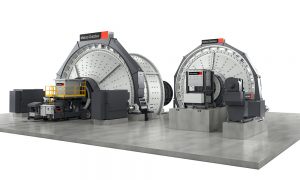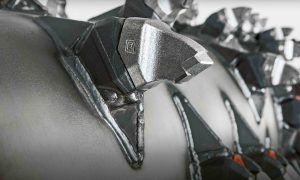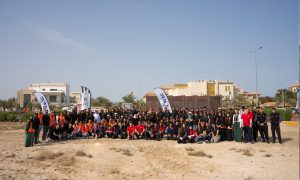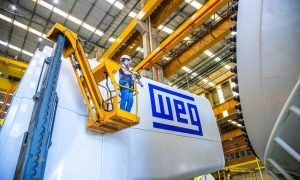Wirtgen introduces new mobile cold mixing plant for sustainable recycling
Environmentally friendly KMA 240(i) processes 240t of various construction material on-site per hour

Wirtgen has launched the KMA 240(i), its new mobile cold recycling mixing plant, which is capable of processing 240t of mix from a variety of construction materials per hour in an environmentally friendly manner.
The John Deere-owned German giant said in a statement that with this “high-performance solution”, it is making a “major contribution to ensuring that recycled construction materials are returned to the road construction cycle in the form of high-quality mix”. The statement added that the new roads and industrial areas built in this way stand out for their high bearing capacity, resistance to deformation, and long service life.
“The KMA 240(i) cold recycling mixing plant produces mix/cold mix that can be paved immediately and is ideally suited to producing different types of bound base layers. In addition to cement-treated base layers (CTB) and roller-compacted concrete (RCC), the machine can also be used to produce bituminous bound base layers (with emulsion or foamed bitumen). The different mixes/cold mixes can be used for a wide range of applications, including highway construction, road and path construction, and the construction of parking lots or industrial areas,” said the statement from Wirtgen.
The cold recycling mixing plant is mounted on a flatbed semitrailer and has its own engine unit. Wirtgen says this mobile design allows the system to be flexibly moved to different locations and set up rapidly. In its new cold recycling mixing plant, Wirtgen has combined the advantages of its earlier model, the popular KMA 220(i), with improved mixing performance and an innovative cement metering system with automatic self-calibration via static weighing.
The new model has a powerful six-cylinder diesel engine designed to match its high mixing capacity of up to 240 t/h. An efficiently insulated housing also ensures it emits very little noise, said Wirtgen. The engine can be operated economically for up to two days on one full tank of fuel, while its low emission values also allow it to be used in urban areas.
With a capacity of 240 t/h, the machine produces a full truckload of 20t of mix every five minutes. As a result, sections of a cement-treated or bituminous bound base layer with a working width of 4m and a paving thickness of 15cm can be completed over a length of 1400m every day.















